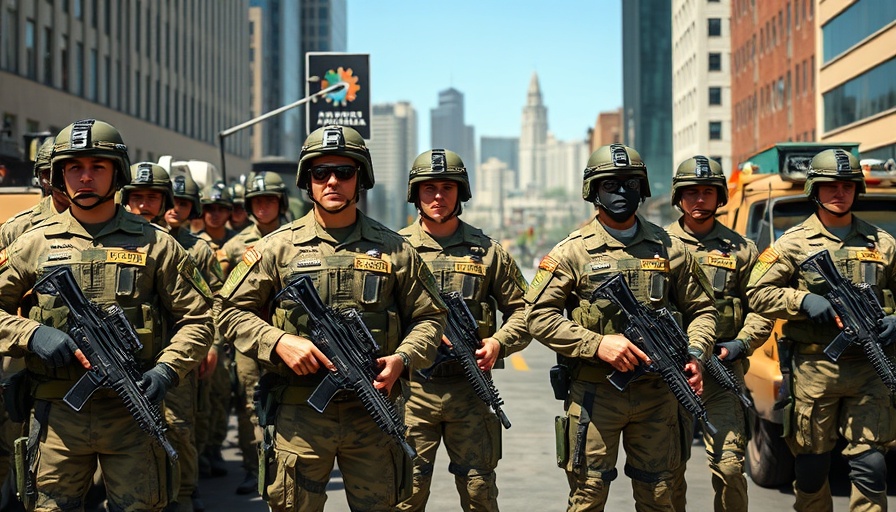
The Context of Increased National Guard Presence in Los Angeles
In a significant escalation of security measures, President Donald Trump has authorized the deployment of an additional 2,000 National Guard members to Los Angeles amidst ongoing protests. This move is intended to manage civil unrest related to various social and political issues that have sparked widespread demonstrations. National Guard troops have been employed in similar situations across the country, indicating a trend toward militarized responses to civil disobedience.
Understanding the Protests and their Implications
The protests that have galvanized the presence of National Guard troops in Los Angeles stem from a complex backdrop of civil rights issues and responses to perceived injustices. These demonstrations, while rooted in specific local grievances, reflect broader national sentiments surrounding police reform, immigration policies, and systemic racial issues. As events unfold, many are asking how such a heavy enforcement presence might impact the nature and outcomes of these protests.
Current Events and National Reactions
With demonstrations occurring simultaneously in various cities across the nation, the decision to reinforce law enforcement in Los Angeles can be seen as part of a broader national strategy. It resonates with communities that have experienced similar conflicts and raises questions about federal versus local responses to civil unrest. Indeed, criticism surrounding the use of military forces in domestic law enforcement is mounting among civil rights activists and political leaders.
Local Voices: What the People Are Saying
Amidst the chaos, the voices of LA residents rise. Some express support for the National Guard's presence, believing it necessary for public safety, while others argue it further escalates tensions between authorities and communities. Interviews conducted at protest sites reveal a wide range of opinions, demonstrating the diverse perspectives among those who feel passionately about these issues.
Historical Context: Security Responses Over Time
Historically, the use of National Guard forces during civil unrest has raised ethical considerations and legal questions. From the Kent State shootings in 1970 to the more recent waves of unrest following George Floyd's death, the military's role in domestic affairs continues to be controversial. Understanding these historical precedents is vital in assessing current events and their implications for the future of American policing and civil rights.
Future Predictions: What Comes Next?
The deployment of such a significant number of National Guard members signals potential for increased enforcement actions in upcoming mass gatherings. Observers are left speculating about how this could influence the trajectory of ongoing protests and the broader climate of civil engagement in Los Angeles and beyond. Social and political analysts are closely monitoring how community relations evolve in response to each escalation.
Conclusion: A Call for Dialogue and Action
As the situation in Los Angeles develops, it becomes imperative for both citizens and leaders to foster open dialogue that addresses the root causes of these protests. Understanding these complexities not only allows for more informed opinions but can also pave the way for constructive action that engages diverse voices in the quest for justice and equality. Engage in conversations with your community about these issues, and consider how you might influence change in positive ways.
 Add Element
Add Element  Add Row
Add Row 



 Add Row
Add Row  Add
Add 


Write A Comment